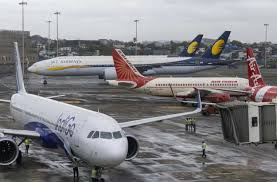Citizens of some countries can enjoy dual citizenship. This allows them to move freely between the two countries without any complications. However, there are a few countries that do not allow citizens to have dual citizenship or even keep the citizenship they were born into. One such country is India. Colombian and Cuban citizens looking for Indian visas need to apply for a tourist visa that will allow them to visit India and stay up to 45 days each.
Why are Indian Visas needed for Colombian and Cuban Citizens?
Indian visas are required for Colombian citizens and Cuban citizens because they are nationals of countries that are not eligible to receive tourist visas on a visa-free basis. The countries that are ineligible to receive tourist visas on a visa-free basis are Afghanistan, Algeria, Bangladesh, Brunei, Cuba, Ethiopia, Gambia, Hong Kong SAR China, Iraq, Jordan, Kuwait, Lebanon, Libya, Macau SAR China , Malaysia , Maldives, Morocco , Nepal , Oman , Pakistan , Qatar , Saudi Arabia , Senegal , Sierra Leone , Somalia , Sri Lanka,, Sudan , Syria,, Thailand and Yemen. Additionally, Indian nationals must have an onward ticket to their final destination and proof of sufficient funds for their stay. Indian Visa for Colombian Citizens
Types of Indian Visas
There are a few types of Indian visas and each one has its own set of rules that must be followed. The most common type of Indian visa is the tourist visa. This type of visa allows you to stay in the country for a specific amount of time and visit specific places. Other types of Indian visas include business, humanitarian, and student visas. Each type of visa has its own set of requirements that must be met before you can apply for it.
Requirements to Apply For a Visa
The procedures for obtaining a visa to travel to India vary depending on your nationality.
To be eligible for a visa, you will need to submit an application form and provide documentation that proves your identity and citizenship. Some common documents that can be used to prove your identity include a passport, driver’s license, or national ID card. You will also need to provide evidence of your financial stability and health insurance coverage. Indian Visa for Cuban Citizens
If you are traveling as part of a group, each member of the group must submit an application form and submit corresponding documentation. The group must also agree on a leader who will be responsible for coordinating the group’s travel and submitting the applications.
The Indian embassy or consulate in your country of residence will review your application and issue you a visa if everything is in order. It is important to keep in mind that some applications may take longer than others to process, so it is advisable to apply well in advance of your trip.
How to Apply For an Indian Visa
If you are a citizen of either Colombia or Cuba and you wish to visit India, you will first need to obtain a visa. The process for obtaining an Indian visa is relatively straightforward, but there are a few things to keep in mind.
To apply for an Indian visa, you will first need to submit a visa application form (available from most Indian embassies or consulates) to your nearest Indian embassy or consulate. You will also need to provide documentation that proves your citizenship and identity, such as your passport or national ID card. Once the application has been submitted, the embassy or consulate will contact you to schedule an appointment for an interview. During the interview, the embassy or consulate staff will ask you a series of questions about your intended trip and confirm that you have enough money available to cover your stay in India. After the interview, the embassy or consulate may request additional documentation or might require that you take a medical examination before issuing a visa.
Once your visa has been issued, it is important to keep all of your paperwork in order. You should carry your passport with you at all times while in India and make sure that all of the paperwork associated with your visa is also available whenever you are travelling. If something should happen and you are unable to travel because of something unrelated to your visa status, be prepared to face some difficult questions from immigration officials.
There are several ways to get around India without a valid visa: by air (through points such
